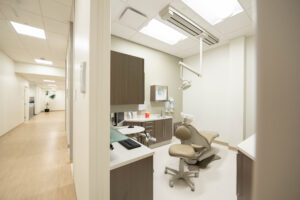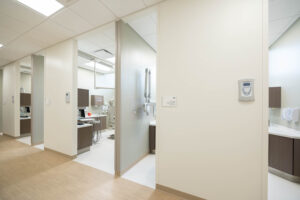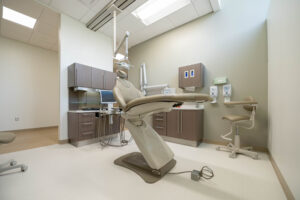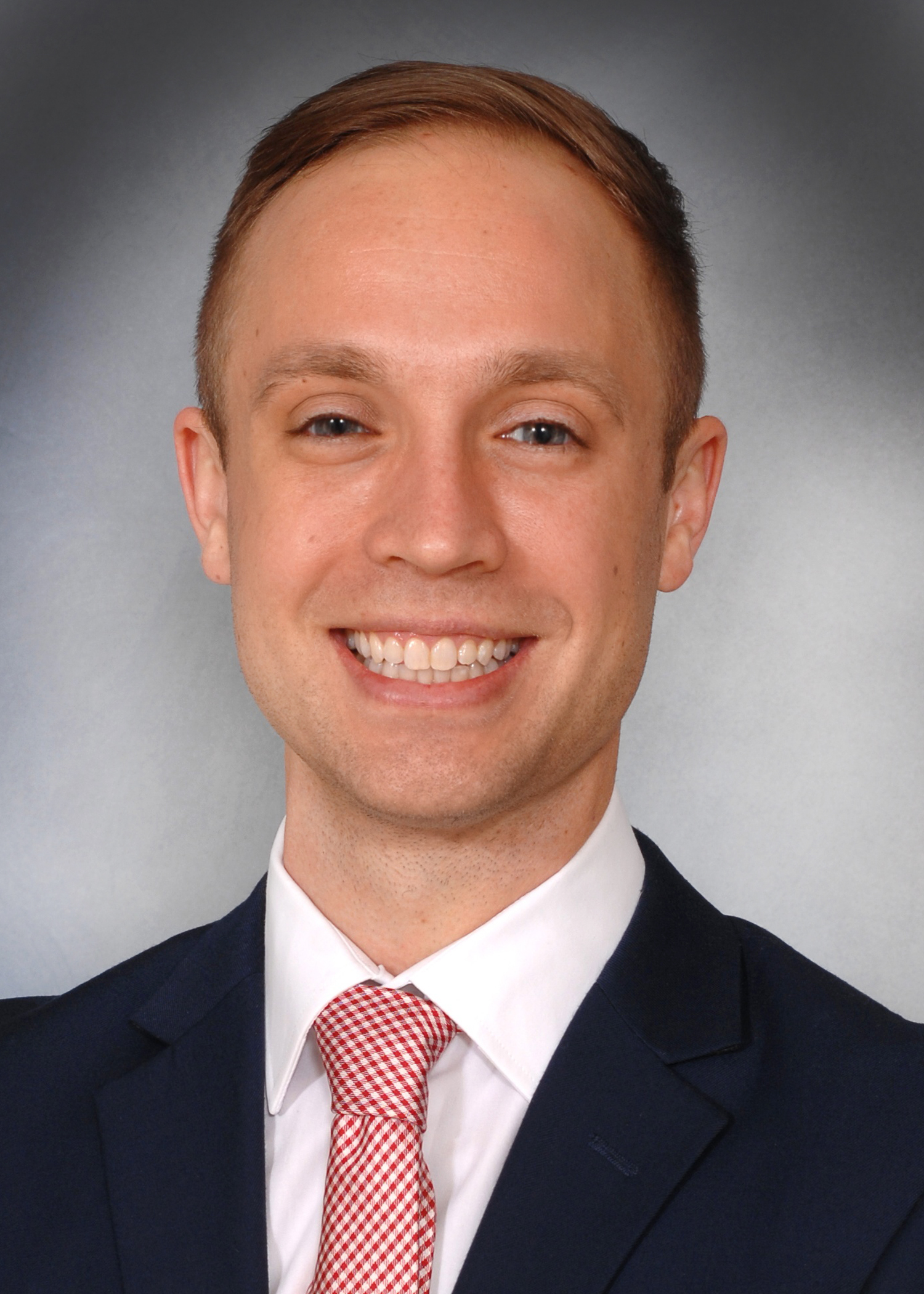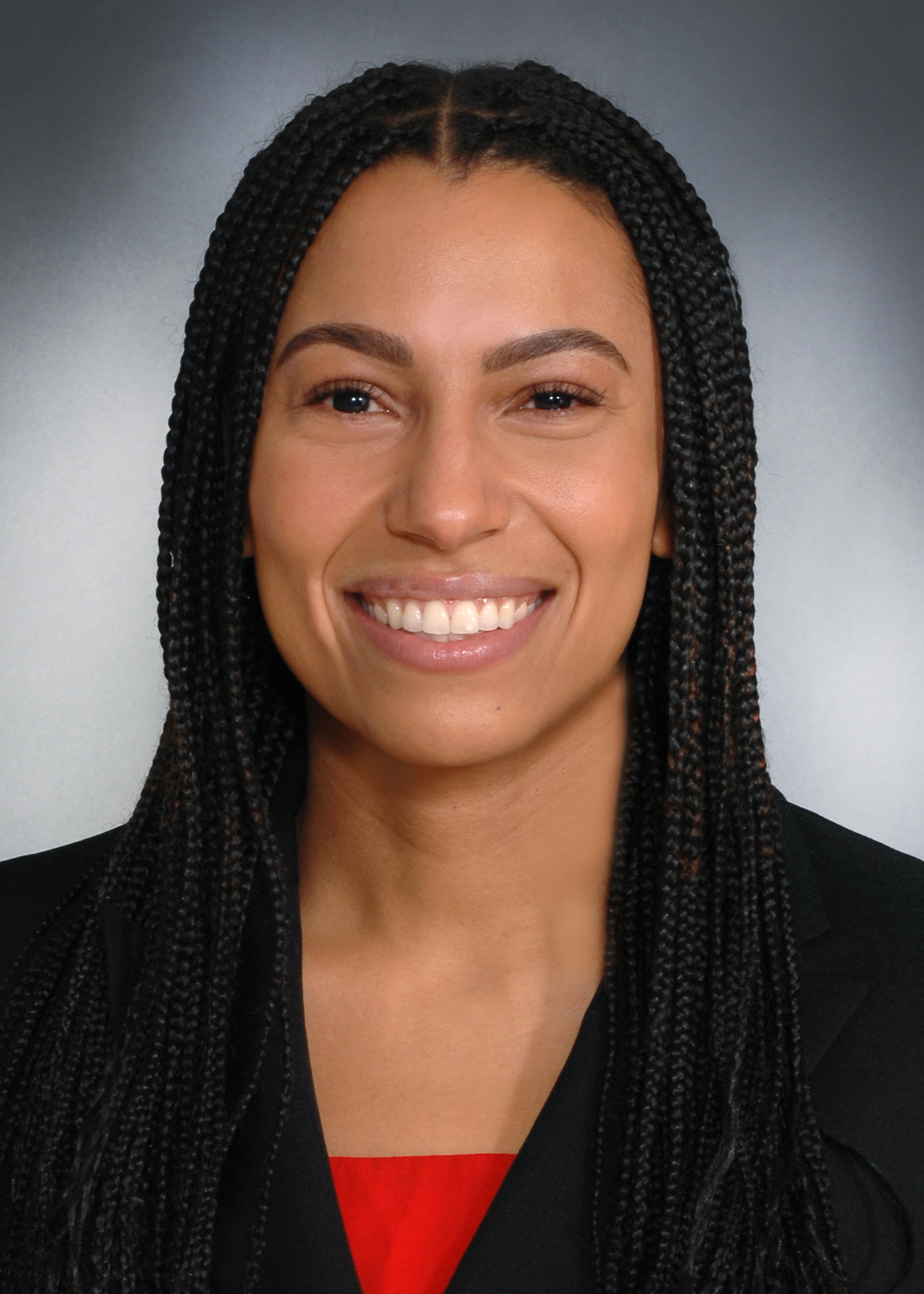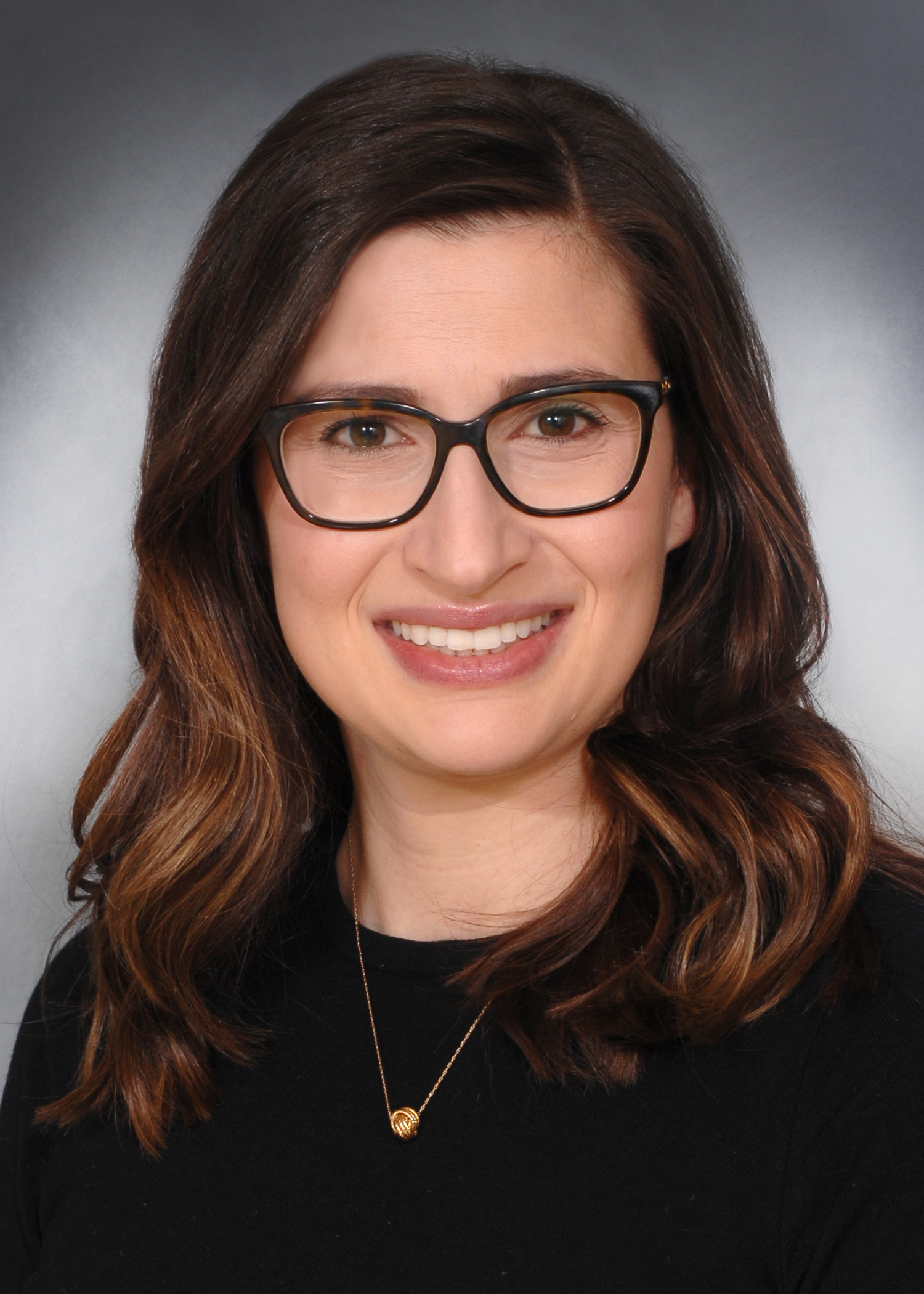The Dental Center
The Dental Center at University of Cincinnati Medical Center is state-of-the-art, featuring direct and indirect digital radiography, digital impressioning, CBCT, and intra-oral cameras. The facility includes ten treatment rooms, in addition to support areas such as a conference room, residents’ room, lab and sterilization room. Construction of the 7,500 sq. ft. Dental Center was completed in April 2021.
Certificate Program
The Advanced Education in General Dentistry Residency Program at University of Cincinnati Medical Center is a one-year educational program and is the only general dental residency program in the Greater Cincinnati area. The program provides clinical, didactic and hospital experience at the postdoctoral level. This experience will prepare residents for the practice of comprehensive general dentistry. Residents will receive a certificate of completion at the end of the term.
- Beginning date: July 1, each year
- PASS participant: Yes
- PASS deadline: Approximately Oct. 1, each year
- MATCH participant: No
- Number of residents: 4
Accreditation status
The Advanced Education in General Dentistry Program is accredited by the Commission on Dental Accreditation and has been granted the accreditation status of approval without reporting requirements. The Commission is a specialized accrediting body recognized by the United States Department of Education. The Commission on Dental Accreditation can be contacted at 312-440-4653, 211 East Chicago Avenue, Chicago, IL 60611 or www.ada.org.
Tuition, Stipend, Benefits
There is no tuition associated with the certificate program. Residents receive a stipend and are eligible for full benefits through UC Health, including medical and dental insurance, life insurance and long-term disability and professional liability insurance. Residents may also choose to participate in a 401(k) retirement plan and flexible spending accounts for health care and dependent daycare. The current resident stipend for 2024-2025 is $65,188.
Requirements to apply
- Apply through PASS.
- Must be a U.S. citizen.
- Must be pursuing D.M.D. or D.D.S. degree from a U.S. or Canadian dental school.
- Must submit 2” x 2” photograph directly to the program (not to PASS).
- Must contact program prior to submitting application AFTER the program’s deadline.
Once accepted, requirements before enrollment in program
- Must have passed Integrated National Board Dental Examination (INBDE).
- Must have earned D.M.D. or D.D.S. degree from a U.S. or Canadian dental school.
- Must submit official dental school transcript directly to the program (not to PASS).
- Must submit an original dental school diploma directly to the program (not to PASS).
- Must have a Limited Resident License from Ohio State Dental Board.
Curriculum
The Advanced Education in General Dentistry program provides educational training and hospital experience in all aspects of comprehensive general dentistry. Some highlights of the program include:
- Majority of a resident’s time is spent in the Dental Center practicing general dentistry.
- One half-day per week rotation in pediatric dentistry at Cincinnati Children’s Hospital Medical Center.
- One half-day per week rotation in oral surgery at the Oral and Maxillofacial Surgery Center at University of Cincinnati Medical Center.
- Two-week rotation in the anesthesia service.
- General dentistry in the operating room for special needs patients who require general anesthesia.
- Implant restorative dentistry – didactic and clinical.
- Rotary endodontics.
- Didactics including Anesthesia/Medicine course, practice management series, dental specialty lectures (TMD, esthetic dentistry, pedo, endo, perio, pros, etc.)
- Practice management software – scheduling, charting, progress notes, radiographs, treatment planning, billing.
- ACLS.
AEGD Staff
Attendings
In addition to the full-time dentist staff, the Dental Center has a number of part-time attendings from the local dental community. This part-time attending staff provides a wealth of experience with a private practice perspective. Our part-time attendings have assigned clinical time for supervision of resident patient care and resident education. They include three endodontists, three periodontists, and a general dentist. The pediatric dentistry and oral and maxillofacial surgery programs provide specialist attending coverage when an AEGD resident is on rotation to those services.
Support Staff
The Dental Center has more than adequate staffing to support resident education and patient treatment. This includes front desk staff, an insurance/billing coordinator and dental assistants. Each AEGD resident has an assigned dental assistant for all patient care in the Dental Center. Additionally, a residency program coordinator is on staff for administrative support of the AEGD program and resident education.
Overall Program Goals
- Provide high-quality, comprehensive, general dental care, and resident education, beyond that achieved as an undergraduate, for healthy and medically-compromised patients, integrating all phases of dentistry in providing that care.
- Make sound judgments in examination, diagnosis, treatment, planning and decision-making during the course of patient treatment, incorporating good patient and staff management principles.
- Act as the primary dental care provider for healthy and medically-compromised patients; coordinate the service of dental specialists and other health care professionals.
- Function efficiently in the hospital setting, providing care for individuals with complex medical and social backgrounds.
- Understand the oral health needs of the community and engage in community service.
Specific Program Objectives
The residency training program will enable the resident to:
General:
Act as a primary oral health care provider:
- providing emergency and multidisciplinary comprehensive oral health care
- obtaining informed consent
- functioning effectively within interdisciplinary healthcare teams, including consultation and referral
- providing patient-focused care that is coordinated by the general practitioner
- directing health promotion and disease prevention activities
- using advanced dental treatment modalities
Assess, diagnose and plan for the provision of multidisciplinary oral health care for a wide variety of patients including patients with special needs.
Manage the delivery of patient-focused oral health care.
Operative dentistry:
Restore intra and extra coronal defects in primary and permanent teeth, including endodontically treated teeth, with a range of materials and methods.
Replacement of teeth:
Treat the partially edentulous patient with fixed, removable and/or implant supported prostheses; treat the completely edentulous patient with removable and/or implant supported prostheses.
Periodontal therapy:
Diagnose and treat mild to moderate periodontal disease using non-surgical and surgical methods, evaluating the results of periodontal treatment.
Manage advanced periodontal disease and periodontal maintenance.
Endodontic therapy:
Diagnose and treat pain of pulpal origin by performing non-surgical endodontic therapy in the primary and permanent dentition.
Oral surgery:
Perform non-surgical and surgical extractions.
Dental emergencies:
Evaluate and treat patients with dental emergencies, including post-operative complications from dental treatment, pain, infection and/or trauma.
Pain and anxiety control:
Provide control of pain and anxiety in the conscious adult and pediatric dental patient through the use of behavior management techniques and pharmacological techniques (local anesthesia, oral/nitrous oxide anxiolysis).
Medical emergencies:
Recognize, diagnose and provide initial treatment for medical emergencies that may occur in the dental office.
Oral mucosal diseases:
Diagnose and manage common oral pathologic conditions.
Temporomandibular disorders, orofacial pain and occlusal disorders:
Diagnose and manage temporomandibular disorders, orofacial pain and occlusal disorders.
Ethics:
Apply the principles of ethical reasoning, ethical decision making and professional responsibility as they pertain to patient care, and practice management.
Practice management:
Apply the principles of practice management to everyday dental practice.
Medical assessment:
Take, record, and interpret a complete medical history (incorporating any physical evaluation performed by a physician) with an understanding of how it impacts on proposed dental treatment.
Nature of the Assignments to Other Departments
Oral and Maxillofacial Surgery (OMS)
The OMS Center at Holmes Hospital is on the campus of University of Cincinnati Medical Center. The Center is home to an OMS residency program. AEGD residents rotate to the OMS service one-half day per week for the entire year. While on this rotation, the AEGD resident works along side the OMS residents doing consults, post-ops and exodontia, with supervision provided by the OMS faculty attendings.
Pediatric Dentistry
Cincinnati Children’s Hospital Medical Center (CCHMC) is across the street from University of Cincinnati Medical Center. The CCHMC dental clinic is home to a pediatric dentistry residency program. AEGD residents rotate to the pediatric dentistry service one-half day per week for the entire year. While on this rotation, the AEGD resident works along side the pediatric dentistry residents doing routine pediatric dentistry including behavior management, preventive, restorative and surgical procedures, with supervision provided by the pediatric dentistry faculty attendings. In addition, the AEGD resident will gain experience in the treatment of pediatric dental patients in the operating room environment.
Anesthesia
AEGD residents spend a two week rotation with the anesthesia service at University of Cincinnati Medical Center. During this rotation, the AEGD resident works with anesthesia residents and faculty attendings to perform a variety of anesthesia related procedures such as IV placement and simple intubations. Additionally, the AEGD resident will learn airway management, monitoring techniques and medications used in anesthesia.
Equal Opportunity Employer
University of Cincinnati Medical Center and UC Health are equal opportunity employers. We strive to ensure equal access to workplace opportunities for all individuals, based on merit, without regard to any dimension of their diversity. Creating a diverse workforce, reflective on all levels of the demographic organizations of both our community and the available, qualified candidate pool, is a top priority of University of Cincinnati Medical Center and of UC Health.

